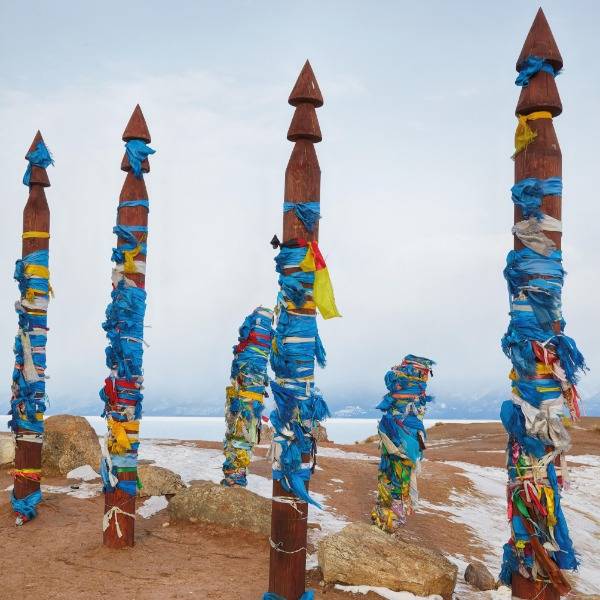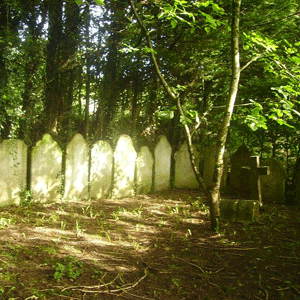You'd be forgiven for thinking that atheism is under threat. Everywhere you look religion seems resurgent. Whether it's Sikhs suppressing, or Christians seeking to suppress, freedom of artistic expression; prelates attempting to force their own agendas onto domestic politics; domestic politicians fearfully and fearsomely threatening to criminalise attacks on religion; or the recent deferential wall to wall coverage of the arcane obsequies for a dead Pope: religion has returned to the centre of affairs. The media ubiquity of Cardinal Cormac Murphy O'Connor, either telling us to mend our ways, demonising abortion, or gushing endlessly about the urgent need to return to the Biblical truth, is just one of the more nauseating examples. You can't help wondering why the head of a minority 'faith community' manages to corner attention and airtime out of all proportion to his true power or importance.
The cunning marshalling in America of Christian hicks as a political force, fuelled by the actions of a tiny gang of Muslim fanatics, along with the enduring ability of religious differences to make people hate each other, have all combined to make it look as if there's something significant going on here. But how powerful, really, is this seeming renaissance of religion?
Four hundred years ago (or 150 years ago, or 80 years ago in Manchester, or last week in parts of Glasgow or Northern Ireland), people would have responded to the death of a Pope by dancing round bonfires in the street, celebrating the demise of the AntiChrist. This time, it was just an outpouring of mawkish sentiment.
And if you look at the list of things we sentimentalise – pets, the Royal Family, the Papacy, babies – they have one thing in common. They're all powerless, and therefore essentially unimportant. The pontificate of John Paul II may have been more malign than benign but, as Stalin famously asked, how many divisions does the Pope have?
If you find this comforting, be comforted further by the response of the world's 'one billion' Catholics. All those picnics in Krakow or on the banks of the Tiber are millions of miles from the fanatical fervour we might have expected, the kind which saw four million hysterical Iranians pull the Ayatollah Khomeini's body from his coffin during his funeral, or even four thousand crushed to death at Stalin's funeral in 1953.
A religion's spiritual potency only has any real meaning if the religion itself exercises some kind of temporal power, either as an arm of the state or as a kind of shadow state whose purpose is to control hearts and minds. And in both senses, it's losing the struggle. In fact, the obsessions of the Mosaic religions with personal conduct, especially sexual conduct, has become yet another factor in their downfall.
Take homosexuality. I suppose it made a certain amount of sense, in Bronze Age Judea when there weren't too many people about, to discourage them from wasting their time engaging in sexual practices other than procreation. But I suspect the later stern Pauline injunctions against homosexuality had more to do with the then ongoing struggle for ascendancy over the more tolerant Hellenic religions. And the obstinacy of the surviving religions in clinging to 2,000year old social expedients exposes another of their fundamental weaknesses.
Banning things is usually a pretty ineffectual way of stopping people from doing what they want. But with homosexuality, it's more a case of opening the floodgates. The three Mosaic religions, being male dominated and fundamentally misogynist, offer the perfect outlet for gay men – especially Christianity. A regime administered by cabals of men in dresses with a deeply sado-masochistic image as its main logo should set most reasonable people's gaydar buzzing.
If the Anglican Diocese of London purged itself of its gay clergy it would cease to function. As the bishop said to a couple of drag queens: "He is a sinful sodomite, your sexuality is a grey area and I am a confirmed bachelor. Well, an ordained one actually."
One of the few charms of Anglicanism used to be that it had nothing to do with dogma or spirituality or fervour or, indeed, religion, being merely the pragmatic creation of temporal authority. Now, it seems, it's facing a schism over how many gay bishops can bugger each other on a pinhead.
In the good old days they had proper schisms. After Christianity finally became relevant by becoming the state religion of the Roman Empire, they were anathematising each other left, right and centre over really important stuff like the nature of the Incarnation or the Trinity, with bishops in Asia Minor having their noses and tongues cut off before being exiled to rocky islands in the Aegean if they backed a different theological horse to the Emperor (although sometimes an Emperor would suffer the same fate). Later, rows over the nature of the Host plunged Europe into almost permanent warfare for nearly three centuries.
So will there be wars of religion between orthodox Anglicans and heresiarchs in the break-away communions of North America? Will gays burn straights, and vice versa, because of their heretical beliefs? Of course not. As I've said, it just doesn't matter that much any more, and with luck, in time, it won't matter at all.

